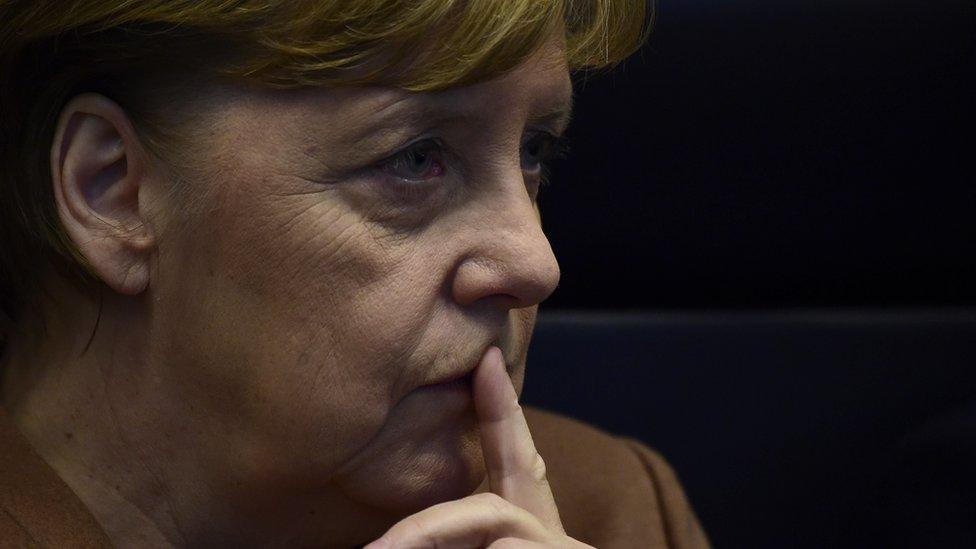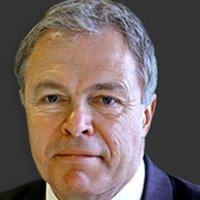Europe: The illusions of summer
- Published
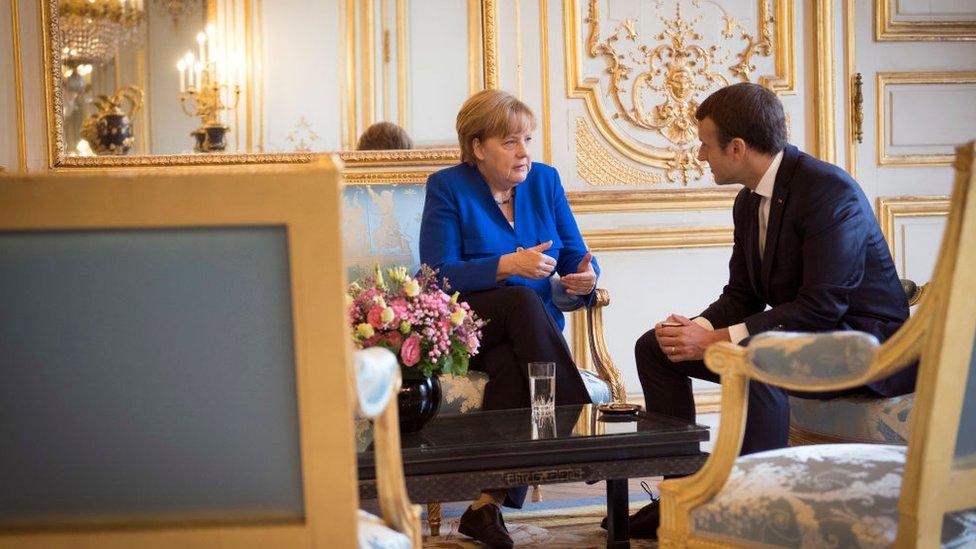
Europe's leaders feared 2017: the onward march of populism, the stagnant economies, the resentment of voters and the spread of Euroscepticism.
And then it didn't happen. Europe breathed again and even dared to believe that faith in the European project had been restored. Yet the story of 2017 is actually how little has changed.
The great mobiliser for the European cause has been Donald Trump.
Whatever their frustrations with Brussels, those who argue for deeper European integration see the rollercoaster of his presidency as strengthening their case, and some EU nations have sought to tighten the European embrace.
The year's turning point was judged to be the election of Emmanuel Macron.
He had campaigned for the French presidency on an openly pro-European ticket.
He promised change: to reform the sclerotic French economy, to re-engineer the European project and to revive the Franco-German relationship.
Now, in the dog days of summer, momentum has been lost. The honeymoon has passed. President Macron's popularity has slumped below 40%. After the first three months in office, Nicolas Sarkozy's approval rating was 67%.
In France, a familiar script is unfolding. A new president plans to reform the "code du travail", the weighty labour code, making it easier to hire and fire workers. Some unions fear their collective bargaining rights are being undermined. Strikes and protests are planned.
Even as Mr Macron prepares to unveil the details of his plans this week, he cannot hide his doubts. "France," he says, "isn't a reformable country. It's a country that hates reforms." His party has a large parliamentary majority but, as in the past, the battle for France's future will play out on the streets.
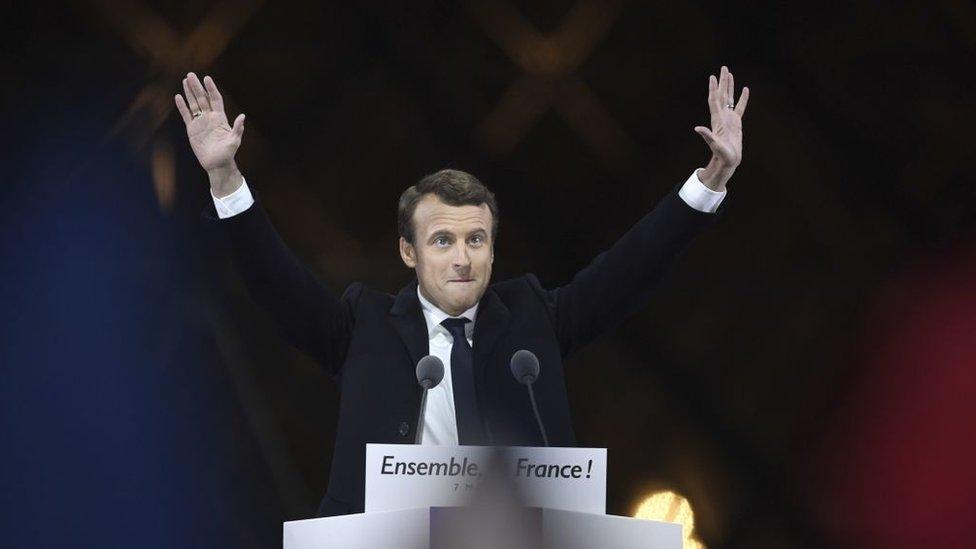
President Macron's poll ratings have slumped since his election in May
President Macron's fortunes are a reminder that the anti-establishment mood has not abated; voters' loyalties have shallow roots and shift easily.
Another test of European opinion arrives on 24 September, when Germany goes to the polls. The debate, so far, is muted. Little has changed from 2013, when the campaign was fought around Angela Merkel's safe pair of hands. She is again ahead in the polls, the candidate not of reform but stability.
There is much to argue over, however; low wages; the failing infrastructure and the deceptions of parts of the auto industry. Some of the big German carmakers are facing new allegations of collusion following the diesel emissions scandal.
Abroad, there is no inclination to exert German leadership beyond being the anchor of the EU.
Crises are being managed rather than addressed. Mrs Merkel has insisted that accepting a million refugees, as happened in 2015, will never be repeated.
The German chancellor is dependent on President Erdogan of Turkey keeping refugees off the front pages. If he doesn't approve of what Berlin is doing, his coastguard can turn a blind eye towards boats leaving Turkey for Greece.
It is no coincidence that in the past week the numbers of migrants arriving in Greece has edged up again, with the recent souring of German-Turkish relations.
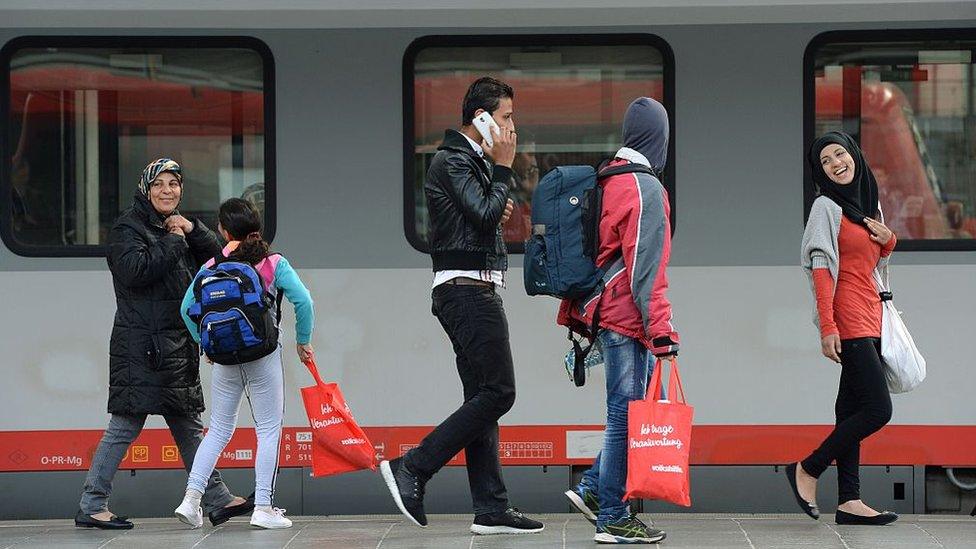
A million migrants arrived in Germany in 2015
In Italy, there is utter weariness and anger at the failure of the rest of Europe to share the refugee burden. The Italian Interior Minister Marco Minniti says that unmanaged migration from Libya is "threatening the social and democratic fabric of Italy".
So, Italy has been active in Libya, helping the Libyan coastguard prevent migrant boats leaving North Africa.
There are reports of traffickers being paid off and of tribes in southern Libya being funded to turn back economic migrants heading north.
In the past couple of months, the numbers arriving in Italy have fallen.
Europe seems to be edging towards setting up refugee reception camps in Africa.
Italy will be the next test case to determine whether populism in Europe has reached its high-water mark.
It will hold elections in 2018, and Europe will be on the ballot.
Since joining the euro, the Italian economy has stagnated.
Despite recent flickers of improvement, it has the second lowest growth in the EU.
The government in Rome wants Brussels to ease the rules on tax and spending.
Waiting in the wings are a raft of anti-European parties, and Silvio Berlusconi could yet re-emerge as a politician of influence.
New fault lines have emerged between countries in Eastern and Central Europe and the rest of Europe.
Poland and Hungary are chafing at directives from Brussels.
Poland continues to ignore protests from the European Commission over plans to change its judiciary.
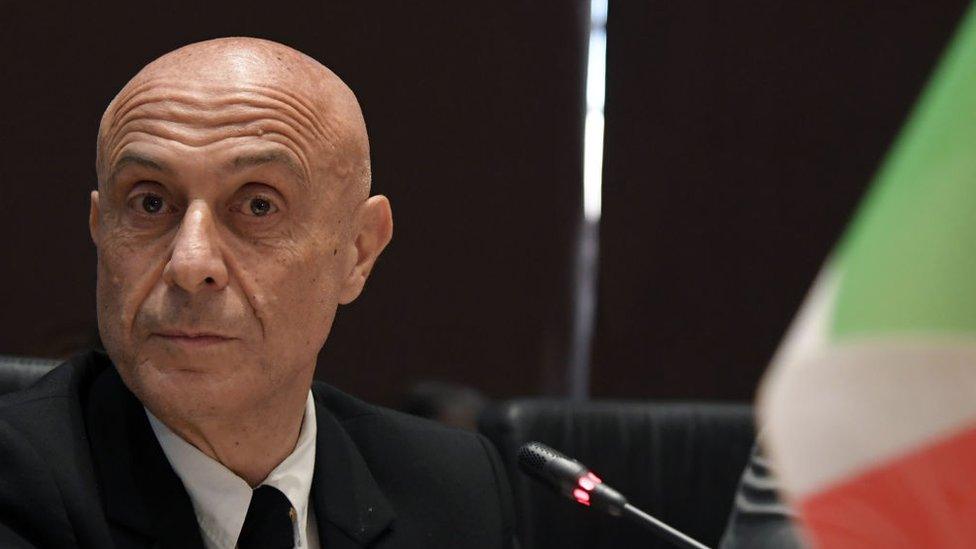
Italian Interior Minister Marco Minniti says unmanaged migration from Libya threatens "the social and democratic fabric of Italy"
Negotiations over Brexit continue but are marked by accusations. Brussels is urging the UK to start talking "seriously". The UK is calling on the EU to show greater "flexibility".
It is possible that the EU will decide in October that sufficient progress has not been made on issues such as the UK's bill for leaving the EU so blocking a move to the next and crucial phase of Brexit - deciding the future trading relationship between the UK and Europe.
Some officials are speaking of the need for both sides to peer over the cliff edge, to feel the sweat of a breakdown, before there is real progress.
In the UK, the Bank of England has downgraded growth forecasts for this year and next. Major international companies, such as BMW, IBM and Google, are continuing to invest in the UK but the Bank's governor, Mark Carney, has warned business investment has been slower than it would have been.
The Germans say their exports to the UK are down by 3%. The business communities are urging putting "shared economic interests first".
But that is not the priority for Europe's leaders. They want to safeguard European unity, and, whatever the economic benefits, they are adamant the UK must not end up better off than if it had stayed inside the EU.
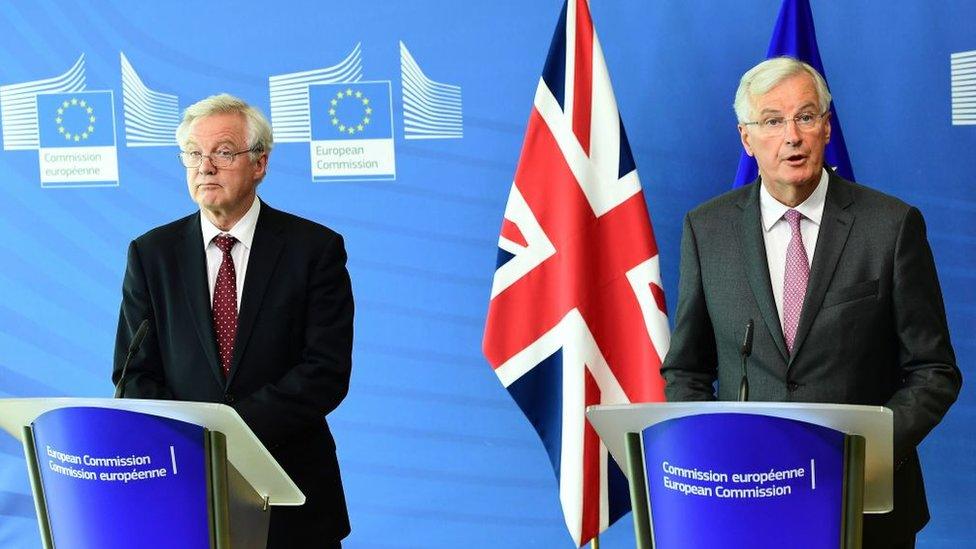
Brexit negotiations are still in their early days
The eurozone economy has revived, but it has removed a sense of urgency in Europe. It grew 0.6% in the second quarter. Unemployment is falling, even in France.
The popular mood in Europe is less Eurosceptic.
The fear of other countries leaving the EU seems overstated. For some, President Trump threatens to erode the international liberal order, but that only encourages Europe to be bolder in looking after its own interests.
But most of the factors that gave rise to Europe's anti-establishment parties have not disappeared: those left behind by globalisation, inequality, the insecurity of the middle class, the failure to manage migration and the terror attacks that since the start of 2015 have killed more than 300 people in Europe.
Europe's leaders, especially President Macron, have spoken of reforming the EU by strengthening bailout funds, by bolstering the eurozone with a finance minister, by greater supervision of national tax and spending.
But Europe's crisis grew out of a gap between what people wanted and what governments and European institutions were delivering. That gap isn't narrowing. Europe is still struggling to manage the range of crises it is facing. What hasn't emerged is a vision to drive the European project forward.
- Published11 May 2021
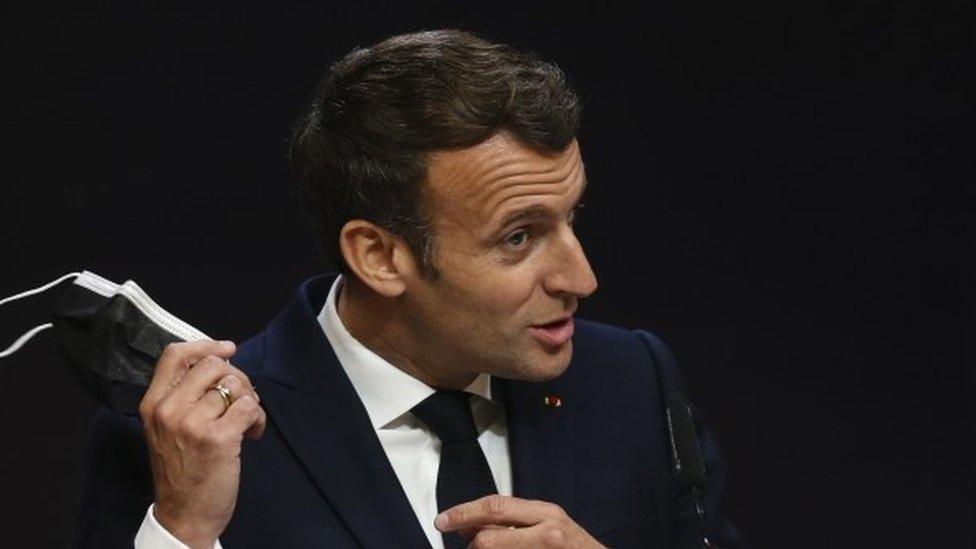
- Published3 June 2019
